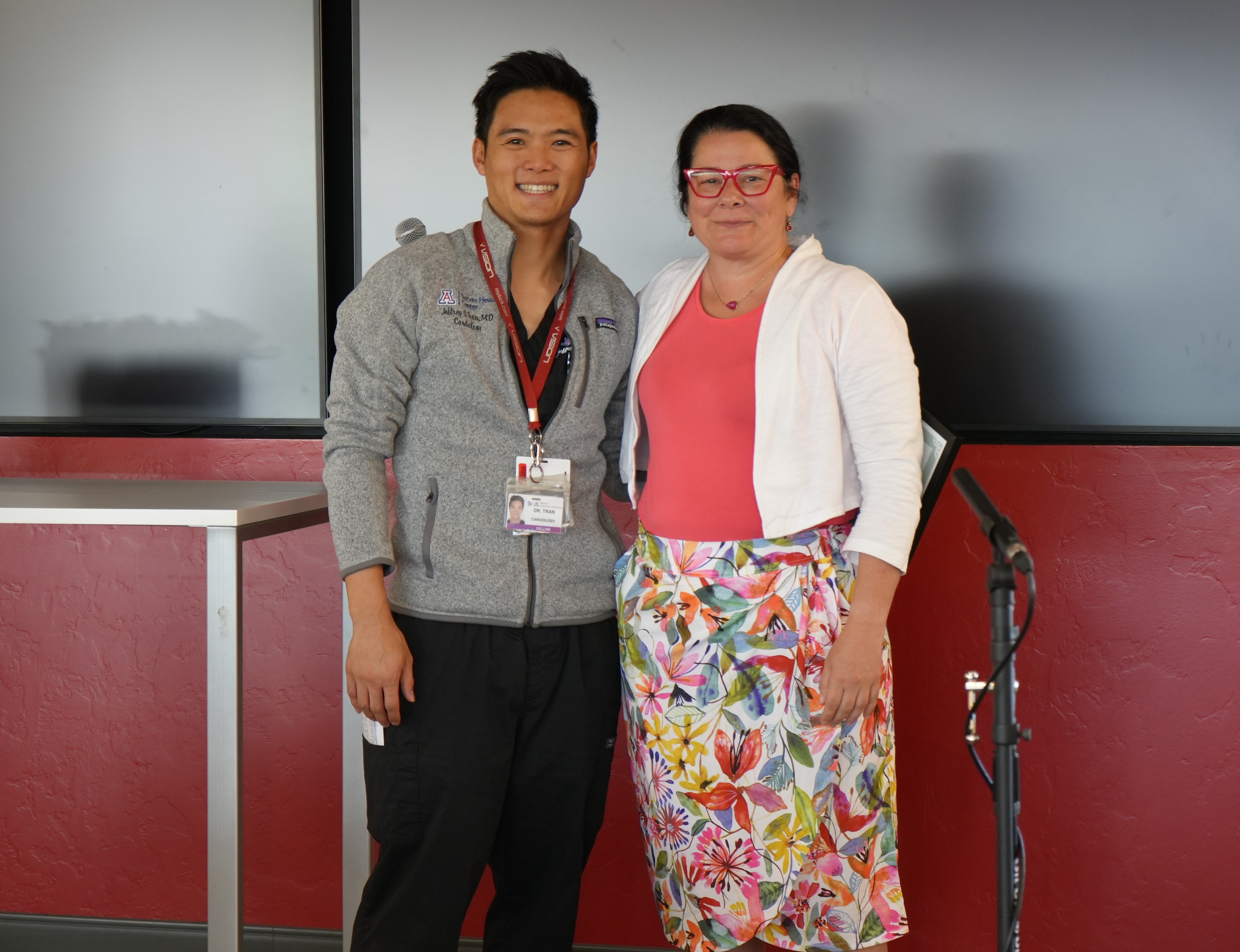Jeffrey Tran, MD, Sarver Heart Center cardiovascular disease fellow and former Director, Nancy K. Sweitzer, MD, PhD were awarded third place in a data challenge hosted by the American Heart Association® and Association of Black Cardiologists.
During the six-month challenge, researchers had access to the American Heart Association’s Get With The Guidelines® – Heart Failure registry data on the American Heart Association’s Precision Medicine Platform to conduct analyses of relationships between heart failure and health disparities, social and structural determinants of health. Nearly 30 experts in the field evaluated the submissions in a formal peer review process.
According to the CDC, health disparities are preventable differences in the burden of disease, injury, violence, or opportunities to achieve optimal health that are experienced by socially disadvantaged populations. Social and structural determinants of health are defined by the CDC as the complex, integrated, and overlapping social structures and economic systems that are responsible for most health inequities. These social structures and economic systems include the social environment, physical environment, health services, and structural and societal factors. Social determinants of health are shaped by the distribution of money, power, and resources throughout local communities, nations, and the world.
 “Improving our understanding of how social determinants of health impact populations in order to develop consequential targeted solutions requires harmonization of different types of data,” said Michelle A. Albert, MD, MPH, past president of the Association of Black Cardiologists and president of the American Heart Association. “The teams participating in the data challenge must be commended for their efforts at addressing health equity, one of the most pressing areas in healthcare.”
“Improving our understanding of how social determinants of health impact populations in order to develop consequential targeted solutions requires harmonization of different types of data,” said Michelle A. Albert, MD, MPH, past president of the Association of Black Cardiologists and president of the American Heart Association. “The teams participating in the data challenge must be commended for their efforts at addressing health equity, one of the most pressing areas in healthcare.”
Tran and Sweitzer’s study, “The Effect of Socioeconomic Determinants of Health on the Prescription of Angiotensin Receptor Blocker/Neprilysin Inhibitors at Discharge from the Hospital,” investigated how socioeconomic determinants of health impact the odds of being prescribed angiotensin receptor blocker/neprilysin inhibitors (ARNIs) in patients experiencing heart failure with reduced ejection fraction being discharged from the hospital. ARNIs are a new class of drugs available to treat heart failure that have demonstrated superiority when compared directly to earlier classes of medication. Because they are new and still under patent protection, ARNIs are expensive. Dr. Tran and Dr. Sweitzer used state-of-the art techniques available on the Precision Medicine Platform for handling large datasets, including multilevel multiple imputation to handle missing data. This expertise of Dr. Tran’s allowed the team to use existing data to the fullest extent possible.
“With access to the rich Get With the Guidelines - Heart Failure registry data, we were able to apply novel statistical techniques to overcome one of the biggest technical challenges facing contemporary retrospective research: missing data,” said Tran. “As a new investigator, this would not have been possible without the generous resource allocation provided through this challenge.”
“These types of data challenge projects provide much-needed insights into the relationships between heart failure and social determinants of health. Data challenges bring in top level scientists to use the data in the interest of providing novel and effective solutions to pressing healthcare problems,” said Jennifer Hall, Ph.D., chief of data science for the American Heart Association.
The team used the American Heart Association’s Precision Medicine Platform to investigate key questions around socioeconomic disparities and heart failure outcomes. The Precision Medicine Platform is an interface that allows researchers to collaborate from anywhere in the world in a secure, cloud-based environment. With artificial intelligence and deep machine learning capabilities, the Precision Medicine Platform gives researchers the power and speed to bring their data together collaboratively and accelerate their findings into impactful discoveries for patients faster than ever before.
The research findings from the winning studies are currently under consideration for publication in peer-reviewed scientific journals and are not yet publicly available.
Read more about the data challenge here.

